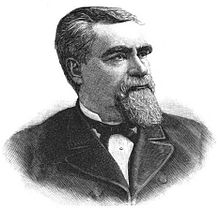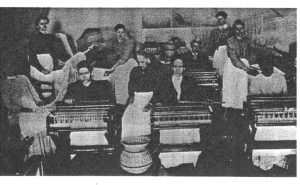Though the rules and duties of each asylum position had been formulated by 1903, they were not initially given to employees at the Canton Asylum for Insane Indians. Its first superintendent, Oscar Gifford, told an inspector that he hadn’t done so because employees often had to assume whatever tasks came up, and he didn’t want to constantly make exceptions to a job description. He may have also feared that no one would want the job of attendant in particular, if they had had a chance to read the extent of their duties.
An attendant’s duties included the obvious ones of feeding, dressing, bathing, supervising exercise and manual labor for patients, preserving order at all times, taking patients to the toilet and meals, waiting on them at meals, etc.
However, they were also expected to be housekeepers extraordinaire. Attendants were to: make beds, dust, sweep, and “brighten the floors, hardware, plumbing fixtures, etc. . . . They shall have special care of the lavatories and toilet rooms, keeping them thoroughly clean.” Every portion of the ward was to be kept “well aired and of proper temperature and as free as possible for objectionable odor.” Attendants were to scrub the floors, walls, and windows when needed, and make beds. In the case of female attendants, all this work would have been done in a long, cumbersome dress and perhaps an apron.
It would have taken a large staff to do all the work properly, and Canton Asylum never had that luxury. Nurses were supposed to administer medicine (and probably change bandages, etc.), but were never hired until the last few years of the asylum’s existence. Attendants undoubtedly had those additional duties thrust on them, and it is little wonder that patient care deteriorated as the asylum filled up.


